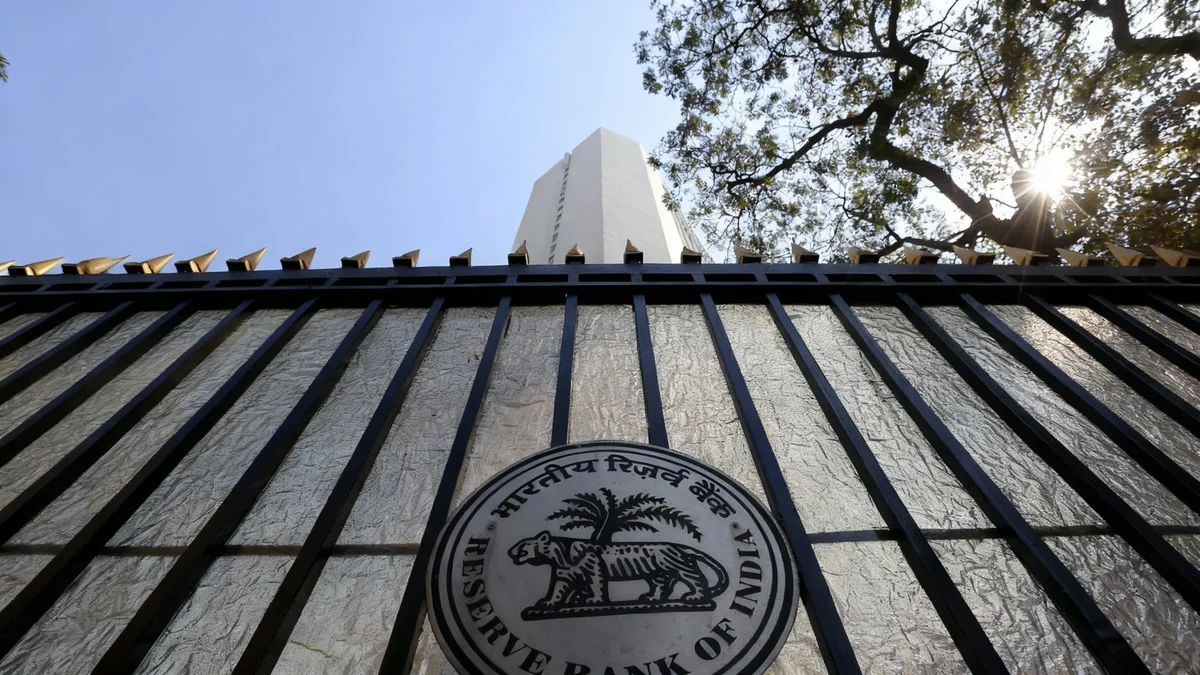The Reserve Bank of India (RBI) has announced a significant exemption for the Special Window for Affordable and Mid-Income Housing (SWAMIH) fund. This government-backed real estate rescue fund will no longer be subject to the central bank's tightened regulations for alternate investment funds (AIFs). This move aims to bolster the fund's ability to finance stalled housing projects, particularly those targeting affordable and mid-income segments across India.
Key Takeaways
- SWAMIH fund exempted from strict AIF regulations by RBI.
- The fund provides debt financing for stalled housing projects.
- Exemption aims to boost project completion and housing supply.
- SWAMIH is managed by SBICAP Ventures, a State Bank of India unit.
- Government cited 'socio-economic purpose' for seeking the exemption.
RBI's Decision to Support Housing Sector
The Reserve Bank of India issued a notification on Friday confirming the exemption. This decision marks a crucial step in supporting the country's real estate sector, which has faced challenges in recent years. The SWAMIH fund, established in 2019, plays a vital role in providing much-needed liquidity to complete housing projects that have been delayed or stalled due to financial constraints.
The exemption comes after the government advocated for sovereign-backed funds, emphasizing their broader socio-economic objectives. These funds often serve a public purpose, such as increasing housing availability, rather than purely commercial returns.
Fund Snapshot
- Fund Name: Special Window for Affordable and Mid-Income Housing (SWAMIH)
- Established: 2019
- Purpose: Rescue stressed real estate projects
- Management: SBICAP Ventures (a unit of State Bank of India)
Understanding the AIF Regulations
Last year, the RBI introduced stricter rules for banks and non-banking finance companies (NBFCs) regarding their investments in AIFs. These regulations required higher provisions for such investments, especially when lenders also had exposure to the projects in which the AIFs were investing. The primary goal was to curb potential risks associated with indirect lending and prevent the 'ever-greening' of loans, a practice where new loans are issued to repay old, non-performing ones.
These tightened rules created complexities for regulated entities investing in AIFs, including sovereign funds. While some relaxations were introduced in March, the government continued to push for a complete exemption for funds like SWAMIH, highlighting their unique role.
"The government sought an exemption for sovereign-backed funds, citing their 'socio-economic purpose' in providing essential housing solutions."
Impact of Previous Restrictions
Under the earlier framework, a single regulated entity's investment in any AIF was capped at 10% of the scheme's total corpus. Furthermore, the combined investment from all lenders was limited to 20%. These limits, while designed to mitigate risk, could restrict the scale and efficiency of funds like SWAMIH, which often require substantial capital to revive large-scale projects.
The exemption means SWAMIH can now operate with greater flexibility, potentially attracting more investment from regulated entities without triggering the previous stringent provisioning requirements. This could accelerate the completion of thousands of housing units.
The Role of SWAMIH in India's Housing Market
The SWAMIH fund was a crucial initiative launched by the Indian government to address the issue of stalled real estate projects. Many homebuyers faced significant delays, and in some cases, complete loss of their investments, due to projects running out of funds. By providing debt financing, SWAMIH acts as a lifeline, enabling developers to complete construction and deliver homes to buyers.
Managed by SBICAP Ventures, a subsidiary of the government-owned State Bank of India, SWAMIH has a strong institutional backing. The State Bank of India itself is a major investor in the fund, underscoring the public sector's commitment to resolving the housing crisis.
What is an Alternate Investment Fund (AIF)?
An AIF is a privately pooled investment vehicle that collects funds from sophisticated investors, whether Indian or foreign, for investing in accordance with a defined investment policy. These funds typically invest in assets like private equity, venture capital, hedge funds, and real estate, which are not traditionally covered by conventional investment vehicles.
Looking Ahead: Boosting Confidence and Supply
This exemption is expected to boost confidence among both developers and homebuyers. For developers, it means easier access to crucial financing, reducing the risk of project delays. For homebuyers, it signals a stronger commitment from the government and regulators to ensure projects are completed, protecting their investments and providing much-needed housing.
The focus on affordable and mid-income housing is particularly important in India, where there is a significant demand for accessible homeownership. By streamlining the funding process for SWAMIH, the RBI's decision directly supports the government's broader agenda of 'Housing for All.'
The move also highlights a nuanced approach by the RBI, recognizing that while general financial stability is paramount, specific instruments with a clear socio-economic mandate may require tailored regulatory treatment. This balance helps to foster economic growth while maintaining prudential oversight.





